Search results for: “gas”
-
Molten Carbonate Fuel Cells: CCS plus Power? The Economics?
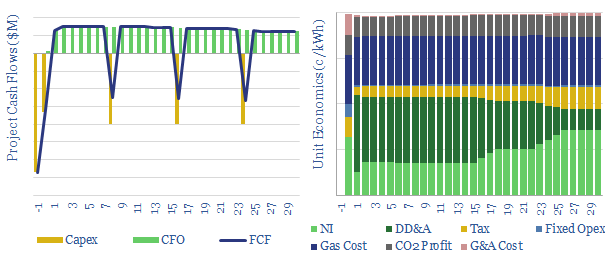
Molten Carbonate Fuel Cells could be extremely promising, generating electrical power from natural gas as an input, while also capturing CO2 from industrial flue gases through an electrochemical process. We model competitive economics. Our model runs of 18 input variables, which you can stress-test.
-
Molten Carbonate Fuel Cells: capture carbon, generate electricity?
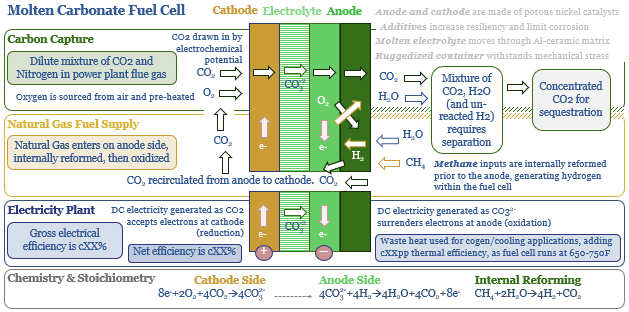
Molten carbonate fuel cells (MCFCs) could be a game-changer for CCS, and fossil fuels. They are electrochemical reactors with the unique capability to capture CO2 from the exhaust pipes of combustion facilities; while at the same time, efficiently generating electricity and heat from natural gas. The first pilot plant was due to be tested in…
-
Electric Vehicles Increase Fossil Fuel Demand?
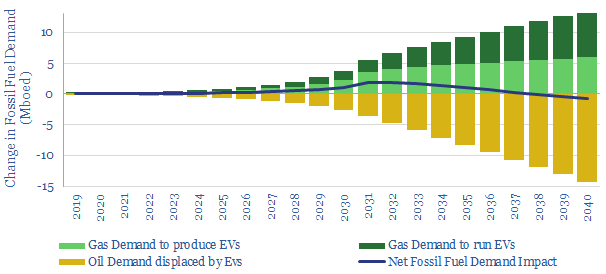
It is widely believed that electric vehicles will destroy fossil fuel demand. We find they will increase it by 0.7Mboed from 2020-35. EVs only start lowering net fossil fuel demand from 2037 onwards. The reason is that 3.7x more energy is consumed to manufacture each EV than the net road fuel it displaces each year;…
-
Fugitive methane: what components are leaking?
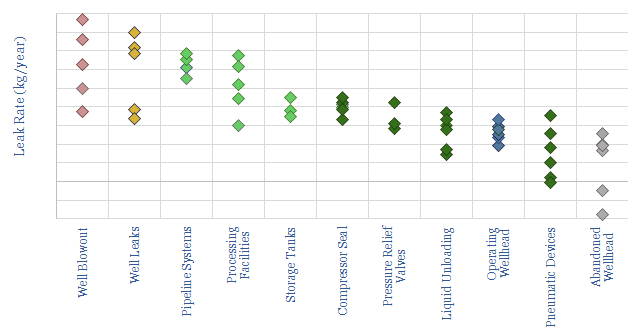
This data-file looks through 35 technical papers to tabulate methane leaks from different components around the oil and gas industry. The largest are losses of well control (up to 1MTpa), then mid-downstream facilities (up to 10kTpa), compressors (up to 100T), pneumatic devices, wellheads and liquid unloading (up to 10T).
-
Decarbonized power: how much wind and solar fit into the optimal grid?
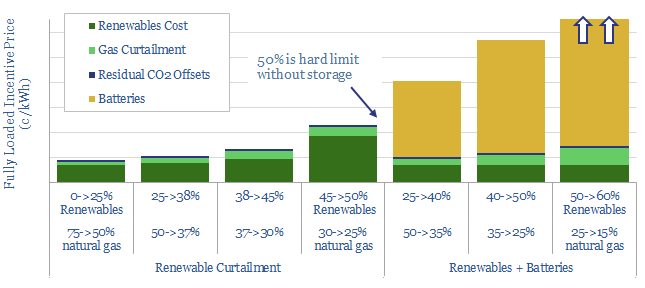
What should future power grids look like? Our answer optimizes costs, stability and CO2. Renewables do not surpass 45-50%. By this point, over 70% of new wind and solar will fail to dispatch, while incentive prices will have trebled. Batteries help little. They raise power prices by a further 2-5x to accommodate just 3-15% more…
-
Plastic products: energy and CO2 intensity of plastics?
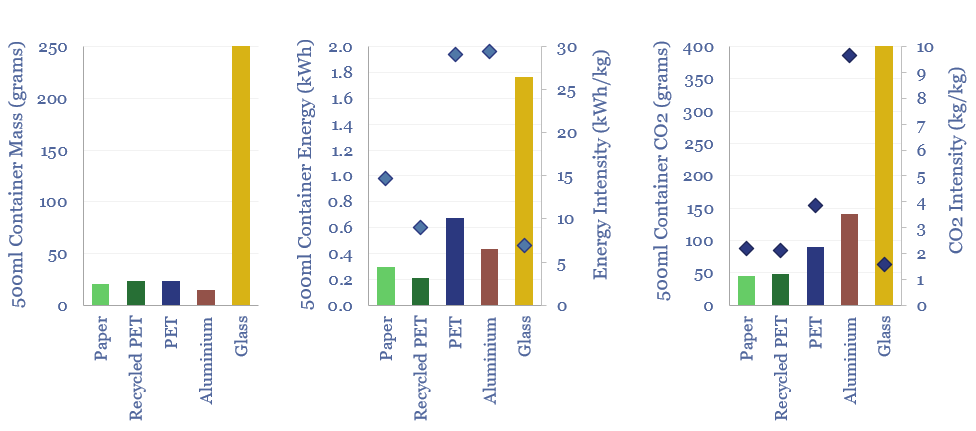
The energy intensity of plastic products and the CO2 intensity of plastics are built up from first principles in this data-file. Virgin plastic typically embeds 3-4 kg/kg of CO2e. But compared against glass, PET bottles embed 60% less energy and 80% less CO2. Compared against virgin PET, recycled PET embeds 70% less energy and 45%…
-
The future of offshore: fully subsea?
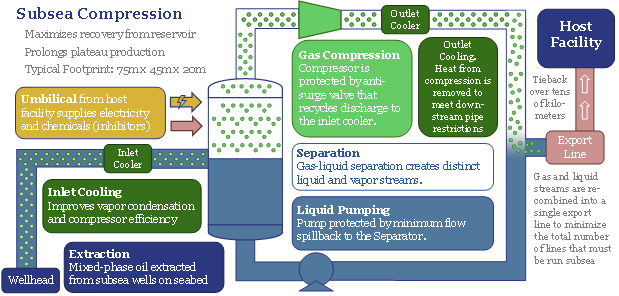
Offshore developments will change dramatically in the 2020s, eliminating new production platforms in favour of fully subsea solutions. The opportunity can increase a typical project’s NPV by 50%, reduce its breakeven by one-third and effectively eliminate upstream CO2 emissions. We have reviewed 1,850 patents to find the best-placed operators and service providers, versus others that…
-
Solar water heaters: the economics?
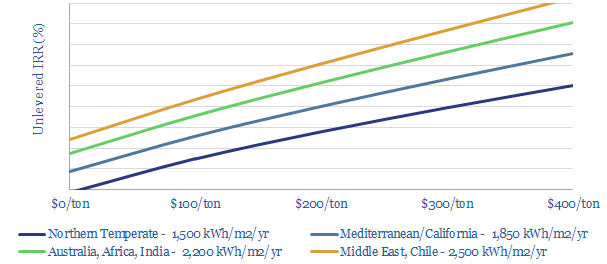
Under our base case estimates, a $130/ton CO2 price is required to achieve passable economics and incentivize rooftop solar heaters. Once installed, solar heaters save around 1T of CO2 per household per year and lower water heating bills by 50-80%. This data-file models the economics.
-
District heating: the economics?
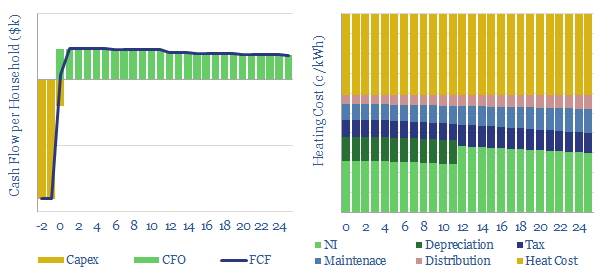
District heating can lower CO2 intensity, by piping waste heat from power generation or industry to consumers. Costs can vary by a factor of 10x. But our base case estimates a 10% IRR at 10c/kWh retail heating price. Please download the model to flex gas prices, household consumption rates or costs.
-
Nuclear Power Project Economics
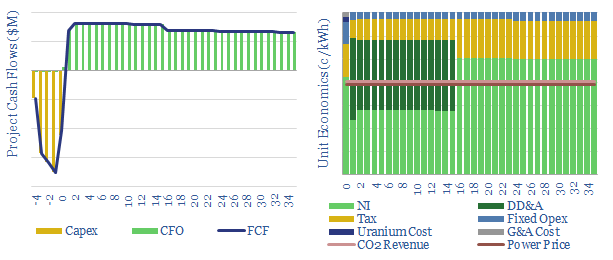
This data-file models the costs of nuclear power project, based on technical papers and past projects around the industry. An up-front capex cost of $6,000/kW might yield a levelized cost of 15c/kWh. But 6-10c/kWh is achievable via a renaissnace in next-generation nuclear.
Content by Category
- Batteries (89)
- Biofuels (44)
- Carbon Intensity (49)
- CCS (63)
- CO2 Removals (9)
- Coal (38)
- Company Diligence (95)
- Data Models (840)
- Decarbonization (160)
- Demand (110)
- Digital (60)
- Downstream (44)
- Economic Model (205)
- Energy Efficiency (75)
- Hydrogen (63)
- Industry Data (279)
- LNG (48)
- Materials (82)
- Metals (80)
- Midstream (43)
- Natural Gas (149)
- Nature (76)
- Nuclear (23)
- Oil (164)
- Patents (38)
- Plastics (44)
- Power Grids (130)
- Renewables (149)
- Screen (117)
- Semiconductors (32)
- Shale (51)
- Solar (68)
- Supply-Demand (45)
- Vehicles (90)
- Wind (44)
- Written Research (355)